Search Images
Browse Content (p. 1066)
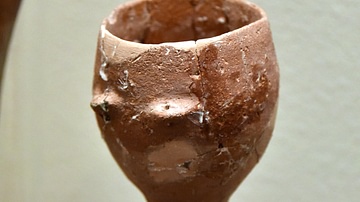
Image
Pottery Goblet from Tulaylat al-Ghassul
Grape vines were first cultivated during the Chalcolithic period. It is probable that such goblets, which are similar to modern wine glasses, were used for drinking wine. Late Chalcolithic period, 3800-3600 BCE. From Tulaylat al-Ghassul...
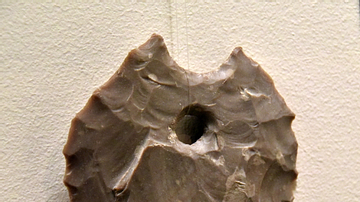
Image
Perforated Flint Disc from Abu Hamid
This is a hallmark of the Chalcolithic industry. The perforation may have been for inserting a stick; the disc would then be used for cutting, as a weapon, or just as a symbol of authority. Late Chalcolithic period, 4000-3800 BCE. From Abu...
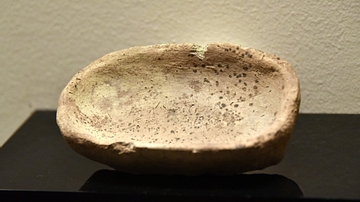
Image
Clay Mold for Casting Copper
Such molds appeared for the very first time during the late Chalcolithic period. Their use indicates a trend towards mass production and consumption of copper goods. Late Chalcolithic period, 4000-3600 BCE. From Hujayrat al-Ghuzlan, north...
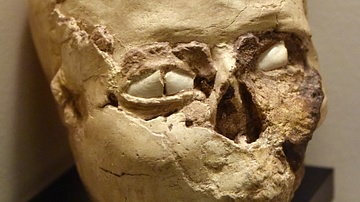
Image
Plastered Skull from Jericho
People invented plaster during the Neolithic period by burning limestone. This new material was used in daily life and for cultic practices. A new tradition also appeared then, that of plastering skulls of the deceased, which were removed...
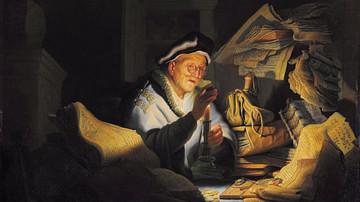
Image
The Parable of the Rich Fool by Rembrandt
The Parable of the Rich Fool by Rembrandt (1606-1669 CE). (Gemäldegalerie, Berlin)

Image
The Ogre & the Cat
An illustration of an ogre, a stock character in medieval folklore (From 'Europa's Fairy Book' by Joseph Jacobs and John Dickson Batten, 1916)

Image
The Wolf & Little Red Riding Hood
An illustration from the medieval folk tale Little Red Riding Hood. (From 'Little Red Riding Hood' by Jessie Willcox Smith, 1911 CE)
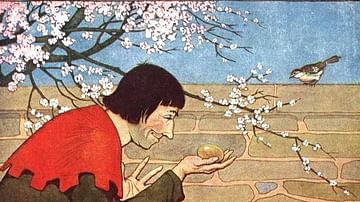
Image
The Goose that Laid the Golden Egg
An illustration from the medieval folk tale of the Goose that Laid the Golden Egg. (From The 'Æsop for Children', by Æsop, illustrated by Milo Winter)
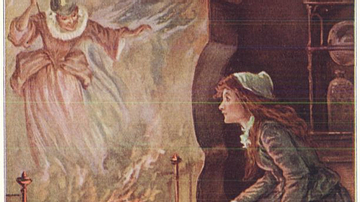
Image
Cinderella & the Fairy Godmother
An illustration of Cinderella and her fairy godmother, a medieval fairy tale. (From 'Childhood's Favorites and Fairy Stories' by Various)
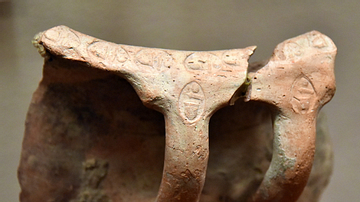
Image
Stamped Pottery Jar from Tell al-Khulayfi
An oval seal impression repeated on the rim and handles of a large jar. Seal impressions are official guarantees of the jars and their contents; therefore, stamped jars indicated the presence of a local administrative center and trade relations...